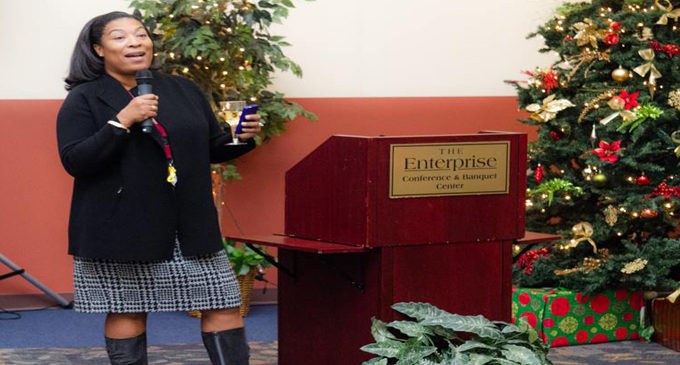The catalyst that is spurring the success of Atkins CDC
Carol Davis, CEO of the S.G. Atkins Community Development Corporation

In 2001 Carol Davis was chosen to lead an up-and-coming community development cooperation that was geared toward pumping new life into the neighborhoods that border Winston-Salem State University, the S.G. Atkins Community Development Corporation. While a lot has changed over the years, the mission of S.G. Atkins CDC has remained the same and Davis has been the catalyst behind it.
Davis said before taking the reins of the CDC, she and her husband ran an organization called COBI (Coalition of Black Investors), where they traveled the country hosting financial literacy conferences. She said the goal of the organization was to teach minority communities how to invest.
“My husband is a financial planner so through his work we got excited about helping people save and invest,” Davis said. “We held a conference in D.C. and we had a lot of the big investors come and talk and it was really exciting, so we started doing more. We went to Atlanta, Houston … we did one in Chicago, Milwaukee. I really enjoyed doing it and we were able to get the support of mutual fund companies and some publically traded companies who wanted to get the word out.”
After hearing about the success of COBI, Bill Turner, who was serving as the CEO of S.G. Atkins at that time, reached out to Davis and asked if she would be interested in the position. A few weeks later Turner introduced Davis to former WSSU Chancellor Dr. Harold Martin and the rest is history. “I was interim at first until they finished the search and I was chosen to stay,” David continued.
“We immediately started working on a strategic plan and laying the groundwork for what we have today. And the first money we got was to build houses on Excelsior Street near Union Station. We built four new homes on that street and rehabbed three on that street, and all for homeownership.”
In 2005, Davis led the way for homes to be built on 10th Street. Just before the housing crisis in 2008. Davis was also the catalyst for The Enterprise Center, which offers start-up and emerging companies office space and exceptional level of support from the business professionals and organizations, as well as faculty from WSSU.
Today the Enterprise Center is home to S.G. Atkins’ Center for Home Ownership, the Shared Use Kitchen, community gardening space, and more than 40 minority-owned businesses. The Enterprise Center also has space that can be rented to host events and programs.
Davis said at times it has been hard, but helping people reach their homeownership and entrepreneurial goals has been worth the risk and time investment.
“I’ve come to realize this type of work takes time because everything has to align just right before something happens,” she said. “It’s hard sometimes to take the risks. You just have to be aggressive, step out and take some chances.”
She said just the possibility of being able to help someone reach their goals keeps her coming back every day. “That is motivating enough … trying to close the gap on those disparities is what motivates me.
“As I’ve said before, when you ride downtown you can see where investment has come. You ride through old neighborhoods like Ardmore, an old neighborhood, but the houses are in good shape and it’s all about that money flowing through and I just love the challenge of trying to do that work in our communities as well.”
When discussing the future of S.G. Atkins, Davis said they are currently laying the groundwork for several new projects including the construction of new homes in the East Winston community near Forsyth Seafood, expansion of the mixed use Shared Use Kitchen, new business education courses, and a new co-working space that will allow business owners to rent space inside the Enterprise Center at a cheaper rate than the private offices.
“We’re trying to listen, be responsive, and try to attract investment,” Davis said. “Five years from now we’d love to see some storefronts and possibly revamp the East Winston Shopping Center with local businesses and investors. I’d like to see more local ownership of the properties in East Winston rather than have outside investors owning so much of the neighborhood, because then they’re not responsive and they don’t have the same commitment.”
For more information on the S.G. Atkins Community Development Cooperation visit http://www.sgacdc.org/about.html.









